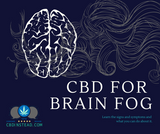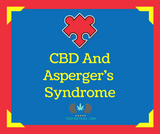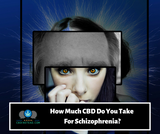“Everything has a name these days,” something I have heard before when discussing things like ADHD and anxiety disorders in children. And this is true. While once upon a time, anyone who fell out of line was a delinquent who needed to be punished, science is starting to discover that healthy minds behave in different ways. One of the disorders that your child may have that you might have chalked up to a bad kid is conduct disorder, and CBD hemp oil may be able to help.
CBD oil may be able to help with conduct disorder by helping your child find relief from comorbid mental health issues such as depression and anxiety. A common cause of this disorder is frustration, anger, and confusion which may be calmed by CBD hemp oil because of the way it interacts with the endocannabinoid system.
What Is Conduct Disorder

We all remember the bad kid in school. He would pull a girls hair, or she would color her desk in permanent marker. We remember these kids, we might have been these kids, but one thing that was always assumed is that the child just needed more discipline and they would eventually learn their place. But for some reason, that didn’t always work.
Conduct disorder is a term that refers to a group of repetitive and persistent emotional and behavioral problems in our youth. These kids have a hard time following rules, respecting others, behaving in a socially acceptable way, or showing empathy. Instead of being viewed as mentally ill, these children are viewed as a disruption or a “bad kid.”
Common Behaviors In Conduct Disorder
Aggression to people and animals
- Enjoys being mean to others
- Starting fights, physical and verbal
- Bullying or threatening others
- Has used a serious weapon before
- Steals and hurts their victims
- Forcing sexual activity
- Shows no remorse
- Physically cruel to animals or other people
Destruction of Property
- Enjoys setting fires
- Enjoys destroying other’s property
- Breaking things regardless if they are angry or not
Deceitfulness, lying, or stealing
- Lying to avoid obligations
- Lying to get something they want
- Stealing with or without the victim knowing
- Breaking and entering someone else’s property
Serious violations of rules
- Disregards curfew
- Runs away from home
- Avoids being at home or school
What Are The Causes Of Conduct Disorder?
Scientists aren’t sure the exact reason for conduct disorder, but they do know of the many possible factors that could put the child at risk of developing this mental disorder. Neuropsychological testing has shown that young people with conduct disorder have an impairment in their frontal lobe of the brain which interferes with their ability to plan, avoid harm, and learn from experiences.
What Is The Frontal Lobe?
The frontal lobe is in the front part of your brain, and it is what makes us different from other mammals. This region of the brain helps to control movement, intelligence, self-awareness, memory, helps us anticipate consequences and helps you plan future actions.
The frontal lobe is the last region of the brain to develop, fully developing in the mid-twenties, and it is very malleable and can be at risk for developmental damage. Damage done to this part of the brain at an early age can cause behavior and cognition to change forever. There are many different ways a child can get damage to this part of the brain from genetics to experiencing traumatic events.
What Factors Contribute To Conduct Disorder?
Genetics
Have you ever been told that your child will be you times ten? That was a common statement said in my household toward my mother. This is because childhood temperament has a genetic basis. If you experienced behavior or cognitive issues as a child, it is more likely that you will have the same issues with your child.
Comorbid Mental Health Issues
PTSD, depression, anxiety, and learning disabilities can all cause problems in the regions of the brain that affect conduct disorder. These mental health issues can be developed after the child experiences trauma like abuse or a death in the family, school failure, brain damage, neglect, genetics, or school failure.
Home Life
Neglect, child abuse, and traumatic events can all cause mental health issues that can lead to conduct disorder, but other factors of homelife can play a role as well. Youth that come from dysfunctional, disadvantaged, and disorganized home environments are more likely to develop this disorder. Antisocial parents, apathetic parenting, poor parental supervision, poverty, living in a high-crime area or going to a school with a high delinquency rate can also contribute to developing conduct disorder.
Social Life
Being rejected by peers or having social issues can also cause kids to develop conduct disorder. Considering that the frontal lobe is a very social part of the brain and needs social interaction to fully develop, not having social opportunities can damage the development of the frontal lobe. Having a low socioeconomic status can also contribute to the development of conduct disorder.
Academics
Children who have problems in school work and have a hard time grasping the content are also more likely to develop conduct disorder. It can be frustrating to not do well in school and not performing well can cause stress that can cause the child to act out.
How Do You Find Out If Your Child Has Conduct Disorder
If your child is acting out, you might want to figure out what is causing this behavior problem. Young people who have a difficult temperament are more likely to develop serious behavioral problems later in life, so finding treatment as soon as possible is imperative for a happy life for your child. So how do you know that your child has conduct disorder?
Young people who show aggression and delinquent behaviors have differences in their cognitive and psychological profiles when they are compared to kids with other mental health problems. When your child is having behavioral issues, you need to bring to an experienced mental health professional to be evaluated. Your child may have a coexisting condition such as PTSD, ADHD, thought disorders, substance abuse, or learning problems which can all be treated alongside conduct disorder.
How Do You Treat Conduct Disorder?

The best way to take care of conduct disorder is through behaviorally therapy or psychotherapy. Research shows that children with conduct disorder are likely to have ongoing issues if they do not receive early and comprehensive treatment. Without this treatment, many kids with this disorder are unable to adapt to adulthood and continue to have issues with employment and relationships.
When you first see your child’s psychiatrist, they will start to develop a comprehensive treatment plan that may use information from the child, your family, their teachers, your community, and other medical specialties to fully understand why your child has developed this disorder.
Both behavioral therapy and psychotherapy are usually needed to help your child learn to appropriately express and control their emotions, including anger. If your child has a learning disability, they may need to start utilizing special education.
Things can be challenging at home or school, so parents will often seek out expert help to develop and carry out special management and educational programs. Home-based treatment programs like Multisystemic Therapy are effective for both the child with conduct disorder and the family.
These therapies often last for long periods of time helping the child learn a new attitude and behaviors. But the earlier you start this treatment, the better chance your kid has for a happier and healthier future.
Often treatment may also include medication for kids who have coexisting mental illness conditions like ADHD, PTSD, depression, or other illnesses that cause impulse problems or attention difficulties. One type of medication that may be beneficial throughout the treatment of conduct disorder in your child is CBD oil.
How Can CBD Help With Conduct Disorder?

Not only is treatment an obstacle already, but the child’s uncooperative attitude and fear can also add to the challenges. Cannabidiol has shown in studies to help with many of the comorbid mental health issues that could contribute to conduct disorder.
CBD For Depression
Depression can cause children to become unmotivated, hopeless, filled with self-loathing, and can even cause them to become aggressive either outward or inward. CBD oil has shown in studies that it may act as a fast-acting antidepressant.
In the study, rodent models received CBD oil. They found that chemicals that are usually lacking in the depressed brain were elevated and certain chemicals that promote neurogenesis in areas of the brain that are usually damaged by depression were elevated as well.
CBD For Anxiety
Anxiety is often the root of aggression in many cases. Anger is often a product of fear, which comes from our amygdala. In a child who has anxiety, their amygdala is overactive which can cause them to act out in inappropriate ways. CBD oil has shown in studies to reduce the activity of the amygdala and give a sense of calm to the user.
CBD For ADHD
ADHD can make it difficult for your child in school and at home. ADHD isn’t just having the inability to concentrate; this can make them become sensitive to rejection as well making any failures in school ten times harder to handle. CBD oil has shown that it may be able to help with focus, concentration, and other symptoms of ADD or ADHD.
CBD For PTSD
Traumatic experiences can change anyone, especially a developing mind. CBD oil has been heavily studied in this area, even having completed human trials in children. CBD oil has shown to help with the fear and anxiety that PTSD brings as well as helping with the memory issues that are often associated with PTSD.
Talk To Your Doctor
If you want to try using CBD oil alongside therapy for your child with conduct disorder, be sure to let your doctor know you would like to try that treatment plan. If your child is on any other medication, it could interfere with the CBD oil and your doctor can help you determine what the best plan of action is. Once you get the okay from your doctor, be sure to stop by our shop! All the products that we accept are lab and quality tested to make sure you get the best CBD hemp oil around!
Does your child have conduct disorder? Did you get treatment for your child? Have you tried CBD oil? We would love to hear about your experience in the comment section below!














